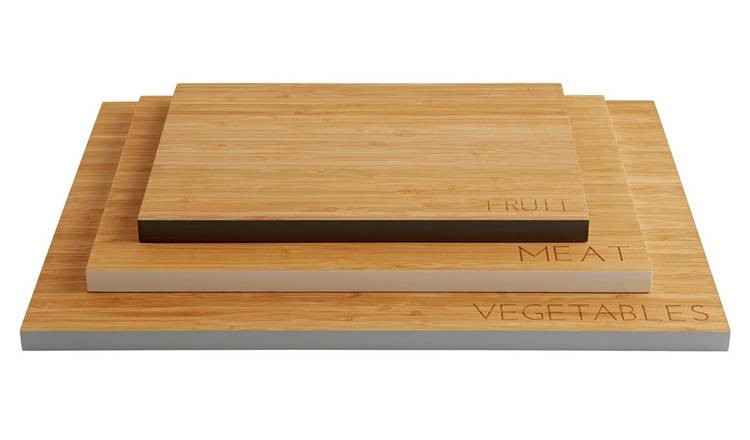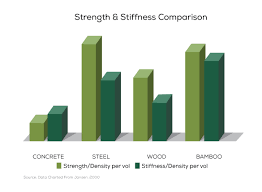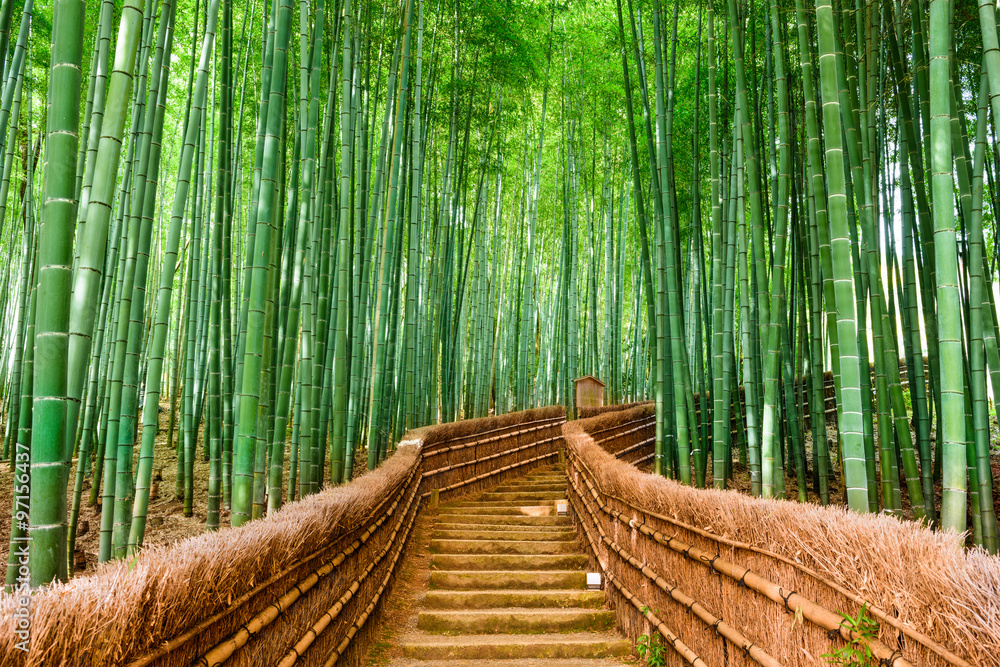In recent years, bamboo has emerged as a versatile and sustainable alternative to traditional materials. With its remarkable growth rate and numerous eco-friendly properties, bamboo has gained popularity in various industries. In this article, we’ll explore the benefits of using bamboo products and how they contribute to a greener and more sustainable future.
The Wonder of Bamboo: An Eco-Friendly Resource
Bamboo has emerged as a sustainable champion due to its remarkable properties and positive environmental impact. As a renewable and fast-growing plant, bamboo holds immense potential to address various global challenges, including deforestation and climate change.
This article explores the significance of bamboo in reducing deforestation, compares its environmental impact to other materials like wood or plastic, and sheds light on its role in carbon sequestration for mitigating climate change.
Significance of bamboo in reducing deforestation
Deforestation is a pressing environmental issue, leading to habitat loss, soil erosion, and a significant contributor to greenhouse gas emissions. Bamboo’s rapid growth and regenerative nature make it an excellent alternative to traditional timber.
Unlike trees, which take decades to mature, some bamboo species can grow up to a meter per day, reaching maturity within three to five years. This accelerated growth rate allows for a sustainable supply of raw materials without depleting forests. By utilizing bamboo for various applications such as construction, furniture, and paper, we can help reduce the pressure on natural forests, thus safeguarding biodiversity and preserving ecosystems.
Comparing the environmental impact of bamboo to other materials, such as wood or plastic
When evaluating the environmental impact of materials, factors such as resource extraction, manufacturing processes, and end-of-life disposal must be considered. In comparison to wood, bamboo possesses several advantages. Bamboo can be harvested without killing the plant, as it regenerates from its extensive root system. In contrast, harvesting wood often involves felling entire trees, resulting in permanent deforestation. Additionally, bamboo requires fewer resources and energy during processing and manufacturing. It has a higher strength-to-weight ratio than many hardwoods, making it an attractive alternative for construction and furniture.
Compared to plastic, bamboo offers a biodegradable and compostable solution. Plastic waste poses significant challenges, as it persists in the environment for centuries, releasing harmful chemicals and adversely impacting ecosystems. Bamboo-based products, on the other hand, naturally decompose, returning to the earth without leaving behind toxic residues. By substituting single-use plastic items like cutlery, plates, and packaging with bamboo alternatives, we can significantly reduce plastic pollution and promote a circular economy.
Carbon sequestration and its role in mitigating climate change
Bamboo stands out as an exceptional carbon sequestering plant. As it grows, bamboo absorbs large amounts of carbon dioxide from the atmosphere, converting it into biomass. This process helps mitigate climate change by reducing greenhouse gas concentrations. Bamboo can sequester up to four times more carbon dioxide than many tree species, making it an effective tool in combatting global warming.
Furthermore, bamboo’s extensive root system aids in soil carbon storage, preventing erosion and promoting healthy soil ecosystems. By cultivating bamboo in degraded areas, we can restore soil fertility, combat desertification, and contribute to the overall health of the planet.
Conclusion: Bamboo’s renewable nature, rapid growth, and versatility make it an invaluable resource in the pursuit of sustainable development. Its ability to reduce deforestation, lower environmental impact compared to materials like wood or plastic, and sequester significant amounts of carbon highlight its potential as a key player in mitigating climate change. By harnessing the power of bamboo and embracing it in various industries, we can foster a greener future while preserving our planet’s precious resources for generations to come.
Advantages of Bamboo Products in Everyday Life
Bamboo has transcended its traditional use to become a versatile and sustainable material that finds its way into various aspects of our lives. From home decor to personal care and construction, bamboo offers an eco-friendly alternative that combines functionality, style, and environmental consciousness. In this article, we explore the many applications of bamboo, ranging from furniture and textiles to kitchenware and construction materials, demonstrating how bamboo can revolutionize the way we live.
Bamboo products in home decor: Sustainable furniture, flooring, and accessories

When it comes to home decor, bamboo stands out as an excellent choice for sustainable living. Bamboo furniture offers a blend of elegance and durability. Its light yet robust nature makes it ideal for chairs, tables, and even beds. Bamboo flooring, known for its unique grain patterns, adds a touch of natural beauty to any space while being highly sustainable. Complementing these furniture and flooring options, bamboo accessories such as lamps, blinds, and decorative items create a harmonious and eco-friendly ambiance within your home.
Bamboo textiles: Breathable and soft clothing, bedding, and towels

Bamboo textiles have gained significant popularity due to their exceptional qualities. Bamboo clothing is known for its breathability, moisture-wicking properties, and softness, providing comfort throughout the day. Bamboo bedding offers a luxurious and eco-conscious option for a restful sleep, thanks to its hypoallergenic and temperature-regulating features. Additionally, bamboo towels are not only gentle on the skin but also highly absorbent, making them a sustainable choice for your bathroom.
Bamboo kitchenware: Utensils, cutting boards, and storage containers

Embracing bamboo in your kitchen can bring both sustainability and functionality to your culinary experience. Bamboo utensils, such as spoons, spatulas, and tongs, offer a lightweight and renewable alternative to traditional plastic or metal options. Bamboo cutting boards provide a sturdy and knife-friendly surface for food preparation, while bamboo storage containers help organize your kitchen sustainably. With bamboo kitchenware, you can cook and serve your favorite dishes with a clear conscience, knowing you’ve made an eco-friendly choice.
Bamboo in personal care: Biodegradable toothbrushes, skincare products, and disposable items

Bamboo’s eco-friendly qualities extend to personal care products, revolutionizing our daily routines. Biodegradable bamboo toothbrushes have emerged as a sustainable alternative to plastic ones, reducing plastic waste that often ends up in landfills or oceans. Bamboo skincare products, including brushes, exfoliators, and facial wipes, offer gentle yet effective solutions for maintaining healthy skin. Moreover, disposable bamboo items like cotton swabs and menstrual pads provide sustainable alternatives that minimize environmental impact.
Bamboo in construction: Strong and durable building materials
Bamboo’s strength, flexibility, and sustainability make it an excellent choice for construction materials. Engineered bamboo panels, known for their high tensile strength, can be used for walls, ceilings, and flooring, providing a renewable and durable alternative to conventional materials. Bamboo scaffolding, with its lightweight yet robust structure, offers a sustainable option for construction projects. By embracing bamboo in construction, we can reduce our reliance on resource-intensive materials and contribute to a more sustainable built environment.
Bamboo’s versatility knows no bounds, making it an exceptional material for sustainable living. Whether you’re furnishing your home, selecting textiles, equipping your kitchen, or prioritizing personal care, bamboo offers a range of eco-friendly options that do not compromise on style or functionality. By incorporating bamboo into various aspects of our lives, we can contribute to a greener future while enjoying the benefits of this remarkable and renewable resource.
Key Benefits of Using Bamboo Products
Sustainability: Bamboo’s rapid growth and regenerative properties
One of bamboo’s greatest advantages lies in its rapid growth and regenerative properties. Unlike traditional timber, which can take decades to mature, bamboo can reach maturity within three to five years. Its ability to sprout new shoots from the existing root system eliminates the need for replanting, making it a highly sustainable resource. Bamboo’s efficient growth rate allows for a continuous and renewable supply of raw materials, without causing deforestation or habitat loss.
Reduced environmental impact: Bamboo’s low water consumption and pesticide-free cultivation
Bamboo cultivation requires significantly less water compared to other crops. It is a naturally resilient plant that can thrive with minimal irrigation, reducing the strain on freshwater resources. Furthermore, bamboo can be grown without the need for pesticides or fertilizers. Its dense growth and natural defenses make it naturally resistant to pests and diseases. By choosing bamboo products, you contribute to a greener future by supporting an environmentally friendly cultivation process.
Biodegradability and compostability: Bamboo products break down naturally, reducing waste

A biodegradable bamboo cup breaks down in 60days.
Bamboo products are inherently biodegradable and compostable. When disposed of, bamboo items break down naturally, returning to the earth without leaving behind harmful residues. This characteristic reduces waste and minimizes the environmental burden associated with non-biodegradable materials. By embracing bamboo products, you play a part in the transition towards a circular economy, where resources are reused and returned to the environment in a sustainable manner.
Versatility and durability: Bamboo’s strength and flexibility in various applications

Bamboo’s strength and flexibility make it a highly versatile material with numerous applications. Bamboo can be used to create furniture, flooring, kitchenware, textiles, and even construction materials. Its impressive tensile strength rivals that of steel, making it a durable choice for various purposes. Whether it’s a bamboo chair that withstands the test of time or a bamboo flooring that adds elegance to a space, bamboo products offer longevity and resilience.
Hypoallergenic and antibacterial properties of bamboo textiles
Bamboo textiles have gained recognition for their hypoallergenic and antibacterial properties. The fabric derived from bamboo fibers is naturally soft and gentle on the skin, making it an excellent choice for individuals with sensitive skin or allergies. Bamboo textiles possess moisture-wicking capabilities, effectively absorbing and evaporating sweat, keeping the body dry and comfortable. Additionally, bamboo fibers contain a natural antimicrobial bio-agent called bamboo kun, which helps prevent the growth of bacteria and fungi on the fabric.
Aesthetic appeal: Natural beauty and unique grain patterns of bamboo products
Beyond its sustainability and functional benefits, bamboo products offer a unique aesthetic appeal. The natural beauty and distinct grain patterns of bamboo add a touch of elegance and warmth to any setting. From furniture showcasing the intricate texture of bamboo to flooring exhibiting its organic charm, bamboo products can enhance the visual appeal of homes, offices, and other spaces.
The benefits of bamboo products extend far beyond their eco-friendliness. From sustainability and reduced environmental impact to biodegradability, versatility, hypoallergenic properties, and aesthetic appeal, bamboo offers a holistic and sustainable solution. By embracing bamboo products, you contribute to a greener planet while enjoying the distinctive qualities and benefits that this remarkable plant has to offer.
Supporting Fair Trade and Local Communities
Beyond its sustainable and versatile qualities, bamboo also offers an opportunity to support fair trade practices and uplift local communities. By choosing bamboo products that prioritize ethical considerations and responsible sourcing, consumers can contribute to creating a positive impact on the lives of artisans and producers. In this article, we explore the potential of bamboo to empower local communities and the significance of certifications and responsible sourcing in ensuring fair trade practices.
Ethical considerations: Bamboo’s potential to empower local communities and fair trade practices
Bamboo cultivation and the production of bamboo-based products can have a direct impact on local communities. By supporting fair trade practices, consumers can help empower artisans, workers, and small-scale farmers involved in the bamboo industry. Fair trade principles encompass fair wages, safe working conditions, gender equality, and community development. Choosing bamboo products that align with these principles can make a tangible difference in the lives of those involved in the supply chain, promoting social equity and economic stability.
Certifications and responsible sourcing: Identifying sustainably produced bamboo products
Certifications play a vital role in identifying bamboo products that have been produced responsibly and sustainably. One such certification is the Fair Trade certification, which ensures that producers receive fair compensation for their work, promotes safe and healthy working conditions, and supports community development projects.
When purchasing bamboo products with the Fair Trade label, consumers can have confidence that their purchase contributes to a positive impact on the lives of workers and communities.
In addition to fair trade certifications, responsible sourcing of bamboo is crucial for supporting ethical practices. Look for products that adhere to sustainability standards, such as those certified by the Forest Stewardship Council (FSC) or the Sustainable Forestry Initiative (SFI).
These certifications ensure that bamboo is harvested in a manner that considers environmental impact, forest conservation, and the rights of indigenous communities. Responsible sourcing guarantees that the bamboo used in the products has been harvested in a way that preserves biodiversity, protects ecosystems, and respects the rights of local communities.
By actively seeking out bamboo products with fair trade certifications and responsible sourcing practices, consumers can make a significant difference. Their support helps to create a demand for ethically produced bamboo, encouraging more companies to adopt fair trade principles and responsible sourcing methods. This, in turn, creates a positive cycle of empowerment, fostering sustainable livelihoods and contributing to the overall well-being of local communities.
Supporting fair trade practices and responsible sourcing in the bamboo industry allows consumers to make a meaningful impact on the lives of artisans, workers, and small-scale farmers. By choosing bamboo products that prioritize ethical considerations and hold certifications such as Fair Trade, consumers contribute to creating a fair and sustainable supply chain.
Additionally, supporting responsible sourcing initiatives ensures that bamboo is harvested in a manner that respects the environment and the rights of local communities. Together, these actions promote social equity, economic stability, and a brighter future for those involved in the bamboo industry.
Conclusion
Bamboo products offer a sustainable and eco-friendly alternative across various industries, from home decor to personal care. By embracing bamboo, we contribute to a greener future, reducing deforestation and promoting responsible consumption. With its versatility, durability, and natural beauty, bamboo is not only a practical choice but also an aesthetically pleasing one. Join the movement towards sustainability by incorporating bamboo products into your daily life.








